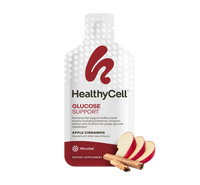ADHD is a disorder that affects around 8% of all adults and 11% of children in the United States. (1) ADHD symptoms can include forgetfulness, difficulty focusing, and brain fog. Brain fog is often associated with ADHD and causes people to feel unfocused and mentally exhausted. Let's look at what ADHD brain fog is, how it develops, and more importantly, how you can manage ADHD brain fog.
What is ADHD?
ADHD stands for Attention Deficit Hyperactivity Disorder. It is a neurological disorder that affects the parts of the brain responsible for self-control, organization, and memory. (2) ADHD brain fog can often be mistaken for cognitive decline or aging, but brain fog is a far more common occurrence among adults with ADHD.
How is ADHD diagnosed?
ADHD is usually diagnosed by a doctor who determines if ADHD symptoms are present. ADHD can be difficult to diagnose as ADHD symptoms often go unreported, can even be missed, or might even be seen as symptoms of a different problem. (3)
If you suffer from ADHD, it can cause you to feel unfocused, anxious, and even depressed. These symptoms are not exclusive to ADHD, so they can be difficult to diagnose.
The most common symptoms of ADHD include:
- Impulsiveness and poor planning
- Disorganization
- Poor time management
- Problems focusing on individual tasks
- Problems with multitasking
- Restlessness
- Easily frustrated
ADHD brain fog develops when the parts of the brain responsible for memory, focus, and organization are affected by ADHD.
What is ADHD Brain Fog?
As with all types of brain fog, ADHD brain fog is a period of cloudy thinking. The individual is often frustrated by their ability to think clearly, leading to disorganization and restlessness - it feels as though doing anything is better than doing nothing. ADHD brain fog causes people to feel unfocused and mentally exhausted.
Brain fog can also cause anxiety, depression, low productivity, forgetfulness, and problems communicating with others. When all these factors combine, it becomes virtually impossible for the person to function normally.
How does brain fog develop?
Brain fog develops from several factors, most notably due to ADHD-related difficulties with organization and memory. Brain fog can also result from stress, lack of sleep, or poor diet. (4)
For some people, brain fog may only last a few hours, whereas brain fog for other people can last a whole day.
Although lack of sleep might be a factor in the onset of ADHD brain fog, it is important to note that brain fog is different from normal tiredness. You may become frustrated and have trouble thinking when tired, but ADHD brain fog can be much more difficult to shake off. The symptoms of ADHD themselves make concentration and focus even more challenging. As a result, people with ADHD are often more likely to experience brain fog than those without ADHD.
In some cases, ADHD brain fog can become chronic. If you suffer from ADHD brain fog regularly, it is important to visit your doctor to determine the cause of the problem and what steps can be taken to treat it.
Although many different factors contribute towards ADHD brain fog, there are simple things you can do which will help ease your symptoms.
How to Manage ADHD Brain Fog
To manage ADHD brain fog, you can use a variety of strategies. It is important to seek support from family and friends to help with the problem. They will be able to encourage and help you, and they may also notice if something is wrong.
There are also some simple steps to help improve your thinking and find your focus again.
Get Support
If you feel that you're struggling with ADHD brain fog, the first step is to talk it out. Discussing what is happening will give you support and encouragement from those around you and help you get back on track.
Get more sleep
If you are not getting enough sleep, ADHD brain fog can develop more easily. Sleep is important for rejuvenating your body after a long day, so try to get at least 7-8 hours of sleep each night. (5)
Exercise regularly
ADHD brain fog can make us feel tired and restless. Regular exercise will help you get more energy, reduce your stress levels and improve your focus. (6) Exercise can also help you sleep better, which improves your focus and clarity.
Eat a healthy diet
A poor diet is likely to contribute to ADHD brain fog. Junk food, sugary snacks, and processed foods are not good for concentration and focus; instead, eat lots of fresh vegetables, fruit, lean meat, and fish. (7)
Improve your routines
If you have ADHD, poor organization is likely to contribute to the development of ADHD brain fog. To improve this, try to plan your day in advance and be as consistent as possible with any daily tasks or routines that you follow.
Use tools such as calendars and alarms to help you remember appointments and keep on top of your daily tasks. Using apps to remind yourself about upcoming events can also be helpful.
Take everything in small steps
Sometimes, people find that their thinking is too cloudy or unclear even when they meet these goals and avoid the factors leading to brain fog. In this case, try not to beat yourself up about it - just try your best at the moment. You can also use tricks such as using sticky notes or dividing big tasks into smaller ones to stay organized and help yourself stay on top of your work.
Limit Distractions
Limit distractions such as TV and social media to give yourself more focus. If you're constantly distracted, it will be harder to concentrate on what you need to get done.
Learn How to Meditate
If you feel that your ADHD brain fog is taking over, then it may be time to try meditation. Meditation can help those with ADHD by taking a break from distractions and restoring their ability to concentrate and focus.
However, if brain fog becomes chronic and seems too hard to cope with daily, you may need to look into medication and supplements. In some cases, ADHD brain fog is caused by an underlying condition such as anxiety, depression, or insomnia. If this is the case, these conditions can be helped with supplements that give your body the vitamins and minerals needed to restore optimum cognitive function.
ADHD Brain Fog Supplements
It is possible to reduce brain fog by taking ADHD medications to improve focus, attention span, and concentration. However, medication isn't for everyone and should be done in consultation with a doctor.
If you're looking for a safe, non-addictive solution to your ADHD symptoms, Healthycell Focus + Recall is a science-backed option that can help you to improve memory, recall, mood, and attention. Healthycell Focus + Recall is an all-natural supplement that combines some of the best brain health ingredients to give you clearer thinking and better focus.
Healthycell Focus + Recall contains everything you need to relieve brain fog symptoms in one simple-to-consume gel pack. You don't need to find the nutrients in your diet, and you don't need to take multiple pills. Simply consume the gel pack directly, or mix with water or a smoothie.
This is not an ordinary gel - this is our next-generation MICROGEL™ delivery system. Designed to be absorbed quickly and easily by your body, the supplement works quickly. You'll notice results in as little as 30 minutes.
When you take pills, the other ingredients used to make them can lower absorption efficiency. If your body can't extract the nutrients, you won't see a benefit from using the product - MICROGEL™ delivers ultra-bioavailable nutrient particles direct to the digestive tract.
Focus + Recall offers fast relief from ADHD brain fog and allows you to get on with your day as normal. Your cognitive performance is improved, and you'll be able to achieve more in one day than you expected. You'll feel sharper, have better focus, and be able to recall information with ease!
In Summary
To tackle ADHD brain fog head-on, you should take care of your diet and exercise routine and find ways to manage stress. Use support from others to help boost your confidence and encourage you in your goals. If you find that the symptoms are still taking over, then meditation may be able to help restore your mental energy levels.
Taking a natural supplement such as Healthycell Focus + Recall will give your brain the boost it needs to improve your focus and reduce your symptoms, helping you to put ADHD brain fog behind you.





